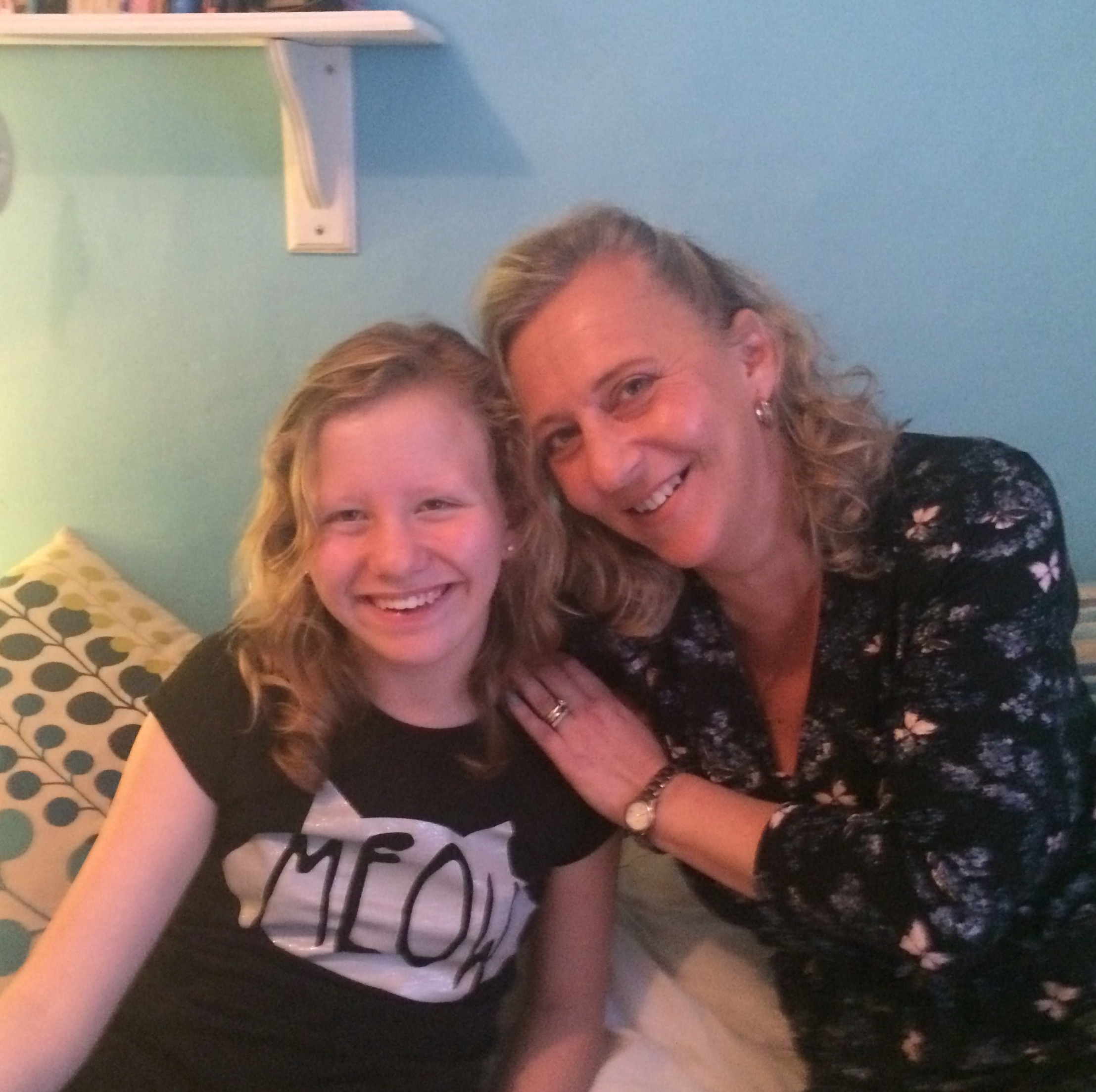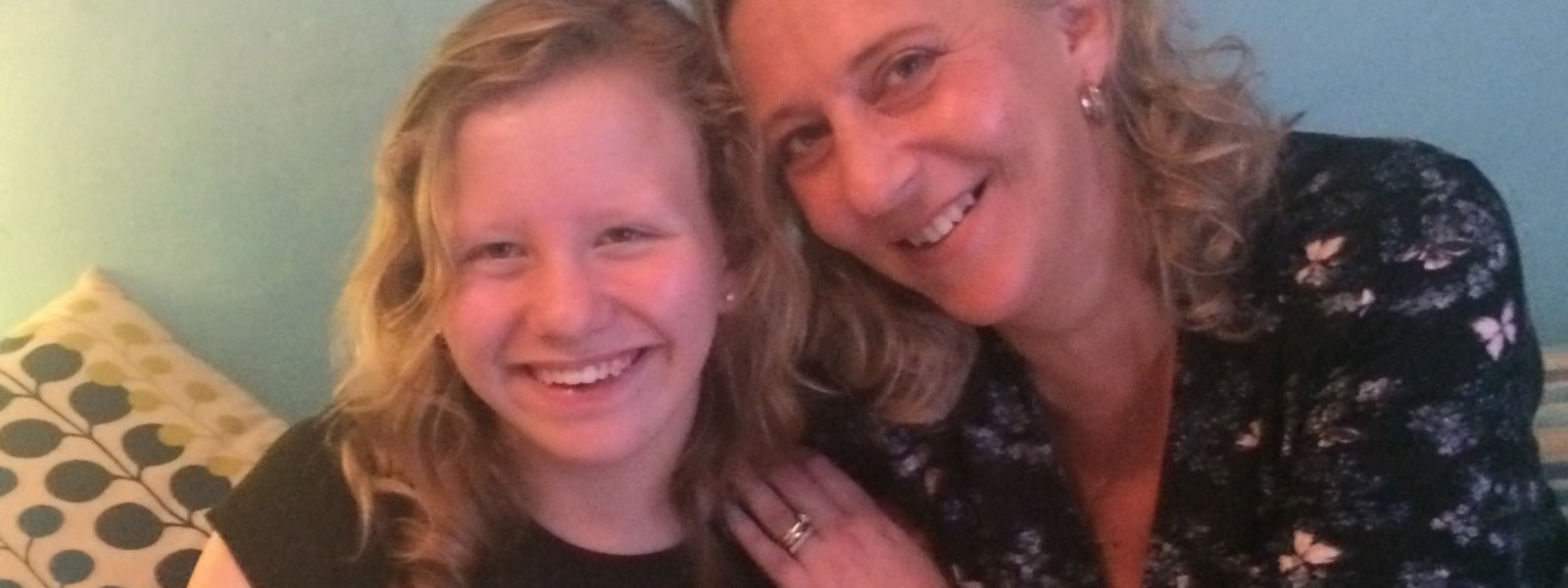Helping an anxious child not to worry
Amanda tells how she helped her daughter overcome her phobias and anxiety.
My daughter Tabitha was what we affectionately call a born worrier. Originally a tiny prem baby she is a sweet earnest and expressive child, usually anxious to please.
At seven she was a great eater with a varied and interested appetite. Then she complained of a sore throat after a potato went down the wrong way. Thinking nothing of it at first, we noticed over a period of weeks that she was making a terrible mess of the table at mealtimes – crumbs and tiny bits of food all over the table and floor.
Separately I noticed that when sitting next to her (not at mealtimes) she seemed to be swallowing “noisily”. Steadily, and then quite dramatically, her food consumption went dramatically downhill and she started to leave much of her food and lose weight rapidly.
We talked to her about it endlessly, got medicine for the continuing sore throat, tried all the usual praise and reward techniques and eventually spoke to the doctor, health visitor and school. Most of whom were a bit unhelpful, suggesting it was a just phase or even attention seeking. This didn’t seem to add up as, if anything, Tabitha seemed more and more upset about the increased attention she was receiving.
Going out of my mind with worry I searched online but all results seemed to focus on other eating disorders and this felt like she was phobic, not about the effects of food, but on the actual act of eating. By chance I hit upon Anxiety UK’s website and phoned up the helpline and spoke to an incredibly calm, reassuring and knowledgeable woman.
She was able, in a matter of minutes, to understand the problem and explained that children who are anxious about eating often develop a clenched teeth method of swallowing that will only allow a small amount of food to go down. Unfortunately swallowing in this way is extremely difficult and actually causes throat pain which compounds the problem. I tried it (while on the phone with an empty mouth) and realised this was exactly what Tabitha had begun doing – not just during mealtimes but all the time.
It was like a light was switched on! The lady on the helpline also explained a route to addressing this, by taking baby steps, advising me to go right back to weaning basics, beginning with totally smooth pureed food. Significantly she explained how important it would be to Tabitha to know there was a plan, to feel that we were working towards a goal and that (at 7) “mummy was on top of it”.
She was also so empathetic and supportive to me in my tearful state and helped me understand a pattern of behavior with Tabitha that had first presented when she was barely 2, and had made her quite poorly after avoiding going to the toilet because one time it had hurt. Immensely encouraged I put the plan into place straight away, explaining to Tabitha our target and our interim goals. We started on soup for a couple of days and then bravely put 5 very soft tiny pasta star shapes in her soup.
We progressed every couple of days with a target that when she was ready, she and I would put on our best dresses and go out for a big Chinese buffet meal.
To my amazement, just under three weeks later there we were tucking into spare ribs and crispy wontons. There’s more good news to this story.

A couple of years later a new anxiety presented itself when the news was full of stories about missing children. We found that suddenly, over a period of weeks, Tabitha was coming down every ten minutes after going to bed and asking for drinks, food, attention.
Again we talked to her carefully and she explained that she was frightened about kidnap. Endless conversations, reassurances from myself, my husband, grandma etc seemed to make no difference and in fact she seemed to be getting worse… reluctant to go into any room alone, running in and out of the bathroom to “minimise the danger”.
I was aware that this was again rooted in what seemed to me to be an irrational anxiety, but I was unsure how to address it. I again phoned the Anxiety UK helpline – as they had been so helpful before – hoping to get advice on how I would go about finding a local counsellor who might be able to help. Again a very helpful colleague listened sympathetically and gave me some incredibly useful advice and this has been the key to everything we have since done.
They explained that by endlessly explaining to an anxious child all the logical reasons why her fears are groundless, we are in fact compounding her fears – her fight or flee instinct was telling her “ok – they’ve explained why there’s nothing to worry about, but I still feel scared – so there must be REALLY be danger”….!
Instead, we followed the pattern we had used for her food phobia and introduced some baby steps. I asked her if she would feel better knowing that I would come to check on her in bed, she said yes. I bought her a new clock and suggested that on the first night I would come and check on her every half an hour. She immediately got it and said “and tomorrow you will come every 45 minutes?” I was so delighted that she realised how we were going to address it and explained that once we had got up to a couple of hours, I would start varying the times slightly – with her target being to be safe in the knowledge that at some time during the night mummy or daddy would come and check on her.
Again – amazing success – within a couple of weeks her anxiety was dramatically reduced and her fear of going into rooms alone seemed to disappear alongside her disturbed sleeping patterns. But the best thing about all of this is what she’s done with this knowledge.
We had a long chat about the difference between “normal” worry (day to day stuff which can be immediately eased by reassurance or action – “have you filled in my form for the school trip”) and what we call “silly worries” (the house will get burgled/burn down etc), which get out of hand and turn into big monsters in her head.
We then traffic-lighted them as a way of her explaining that initial reasurance is not helping. Since then we’ve faced a couple of new anxieties head on using this approach and amazingly she has come up with her own baby steps / plan to facing her fears, resulting in incredibly quick and effective resolution. She’s also keen to chip in with some really practical and informed suggestions when other mums are overheard talking about their children’s fear of the dark etc.
I think Tabitha will always have a tendency towards worry but she seems to have equipped herself with a coping strategy that works, whatever the worry is. She is growing in confidence, popularity and humour and is approaching her imminent SAT tests next week, and looming entrance to secondary school, calmly and happily. I’m so proud of her and so grateful that I was able to access help for her (and me!) when she was young enough to trust me completely and learn some of these coping techniques.
If you would like to speak to someone at Anxiety UK, please call them in 0844 332 9010. This is a free dedicated Anxiety UK helpline for PHA UK members if they are feeling depressed or anxious and need some to talk to. The helpline is open from 9.30am to 5.30pm Monday-Friday. You can also visit www.anxietyuk.org.uk
















